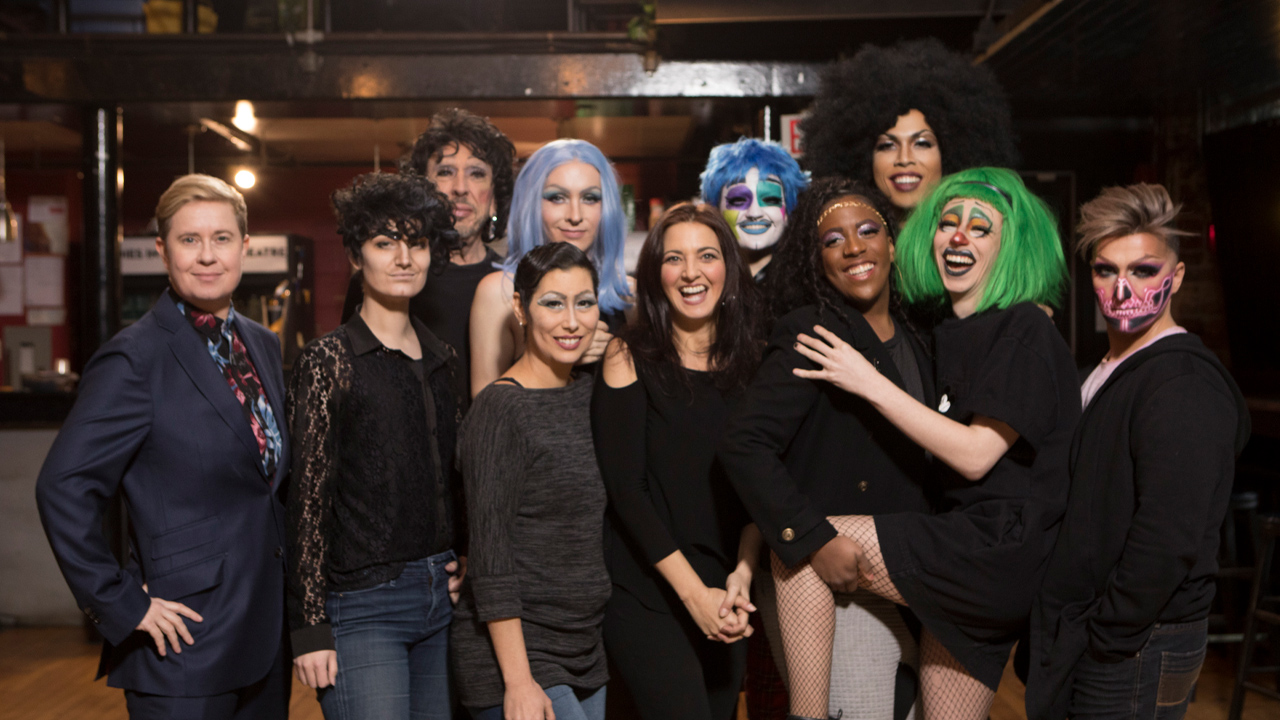Drag Heals Is the Queer Representation We Need On TV
When we see drag on TV, it’s almost always in competition format. The competitive element of television’s most popular drag-based show, RuPaul’s Drag Race, is such a touch point that it’s become a meme: as Lashauwn Beyond said in season 4, it’s not RuPaul’s Best Friend Race.
Canada’s Drag Heals actually is drag’s best friend race. The show, which was created by Tracey Erin Smith and heads into its second season on OutTV, Amazon and Apple TV on October 2, features no eliminations and an abundance of group hugs. The cast is an inclusive mix of backgrounds, ages and genders. And the show provides a blueprint for how to correct problematic behaviour without cancelling anyone.
The cast of Drag Heals season two joined FLARE on Zoom ahead of the premiere for a roundtable discussion on drag culture, from misogyny to pronouns, cultural appropriation and how drag can be gender-affirming for transgender artists. Read our chat here.
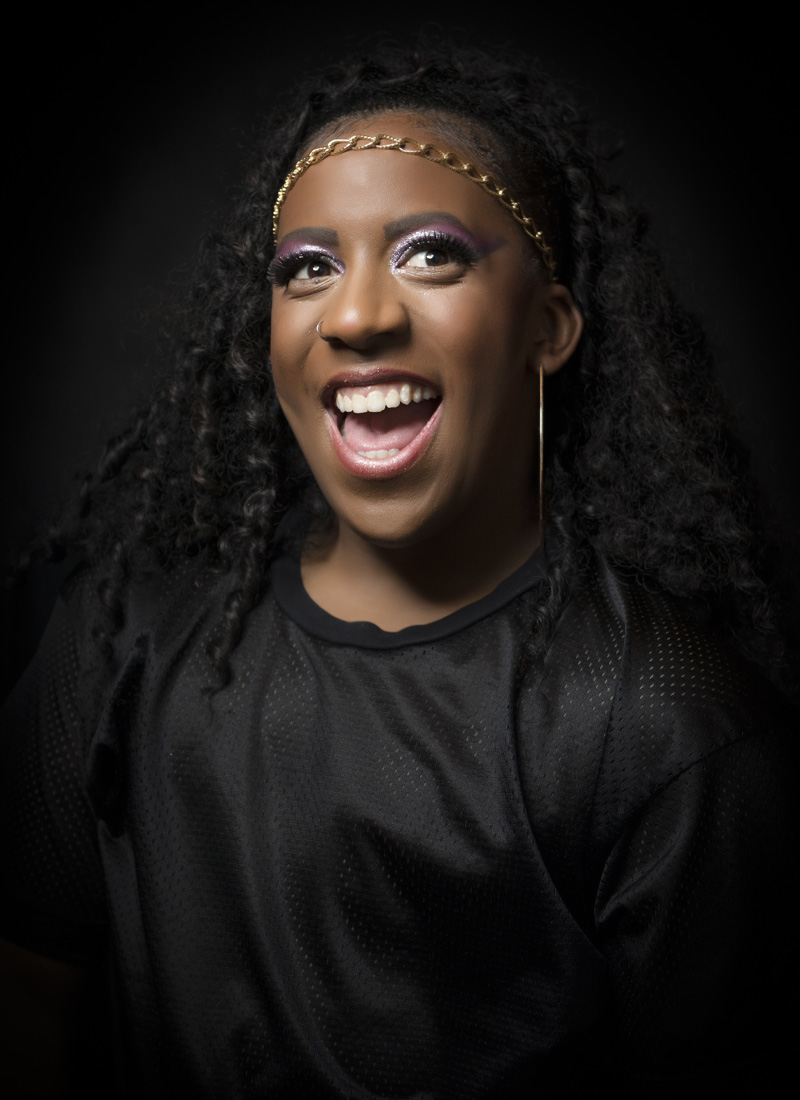
This show comes on the heels of Canada’s Drag Race, which only featured drag queens. What does the inclusion of drag kings and artists with non-binary drag personas add?
Spectra Vaganza: I would say perspective, ultimately. Representation. From somebody who is coming from a Drag Race background—that was my first introduction to drag—I gained perspective [by watching]. 50% or more of the journey for me was observing what drag really is, not what it has been cut down into [on TV].
Ocean Giovanni: The very first show I went to as an underaged, pimply child was a drag king show. Drag queens were never my ‘normal.’ But when most people think of drag, they think drag queens, and we need to normalize the fact that not only cis men dressed up as cis women is drag—there’s a whole community out here and we’re all talented-ass children.
Dank Sinatra, could you explain what the term ‘drag thing’ means?
Dank: It’s someone who does drag who isn’t a drag king or queen, which might involve the blending of masculine and feminine characteristics, or even the characteristics of inanimate objects. It’s gender play as drag.
Ocean, you’re a drag monarch. That’s a new term for me. Can you explain what it means?
Ocean: The way I explain it is that I still want my shiny little crown. Monarch is still royalty—you’ve got king and queen, then you’ve got [monarch].
You’re not a king, you’re not a queen, but you’re definitely royalty?
Ocean: The crown is still on my head—yes!
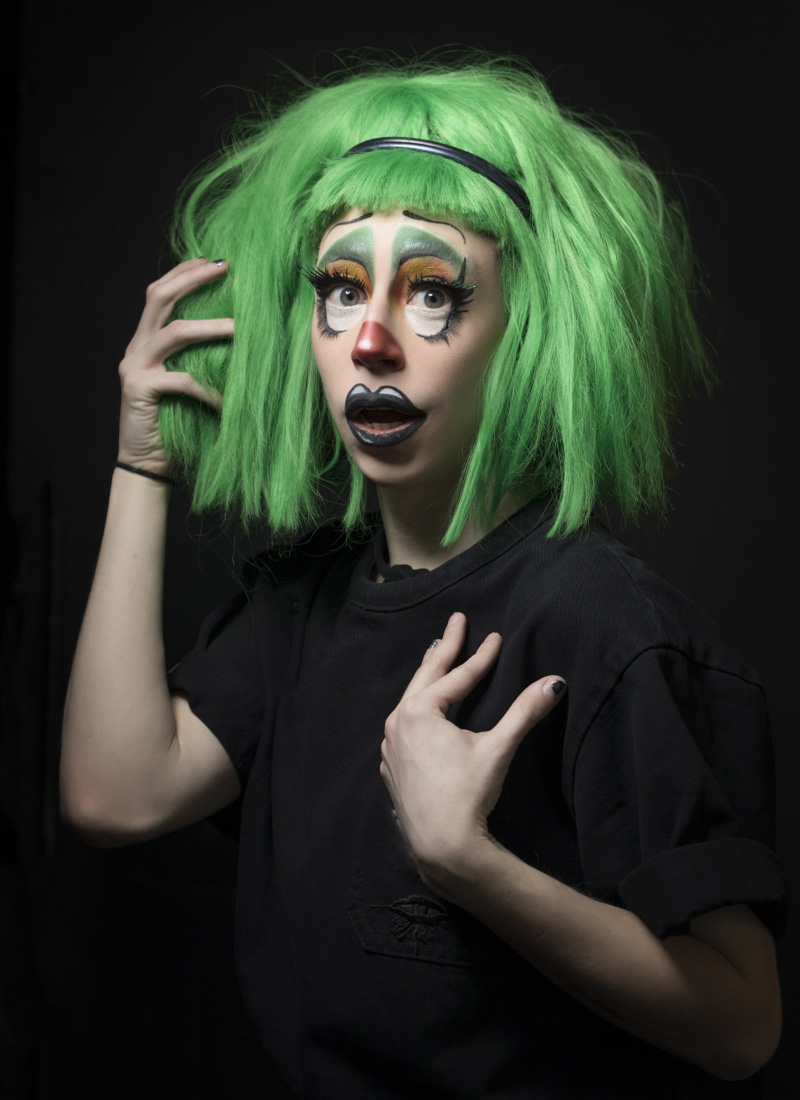
Lady Kunterpunt, on the show you describe yourself as a ‘baby’ trans woman. You finished filming early in 2020. How do you feel having the show come out now that you’re further along on your journey?
Lady Kunterpunt: I don’t want to say embarrassed, because that’s not the right word. But in January—it feels funny because I was so nervous [then]. January was the first time I was talking to my parents and saying, ‘I’m serious, this is how I’m moving forward with my identity.’ That feels like years ago now, probably because of Miss Corona.
I also changed my name in between filming and now. I’m going by Kylie now, as opposed to Kyle. That isn’t necessarily a dead name to me, it’s still my legal name, but Kylie’s a little cuter.
How can drag be gender-affirming or otherwise help a trans performer?
Lady Kunterpunt: The story of a drag performer who discovers their gender identity and comes out as trans is a tale as old as time. Personally, drag gives me the ability to access my fantasy and having those fantasy moments was how I was able to realize, ‘Wait a minute, why am I so comfortable dressing like this and feeling like this?’
Through drag, I got to taste what it was like to do the thing I really wanted to do.
Rosé Dior, you have a moment in the show in which you use the wrong pronouns for Dank. It’s heartbreaking because it’s clear you wanted to do the right thing, but you slipped.
Rosé: Doing the show was the first time I met somebody who is nonbinary or trans. I’m a terrible gay in that I’m not educated in some of these things. When I called Dank by the wrong pronouns, it ate me up because I want to be there for my family, for my community, I want so hard to make sure everyone is accepted. When I said the wrong pronouns and was corrected, I was like, ‘Damn, shit. I’m doing a terrible job as a gay man, as a person in society, as a human, not being able to do this simple task.’
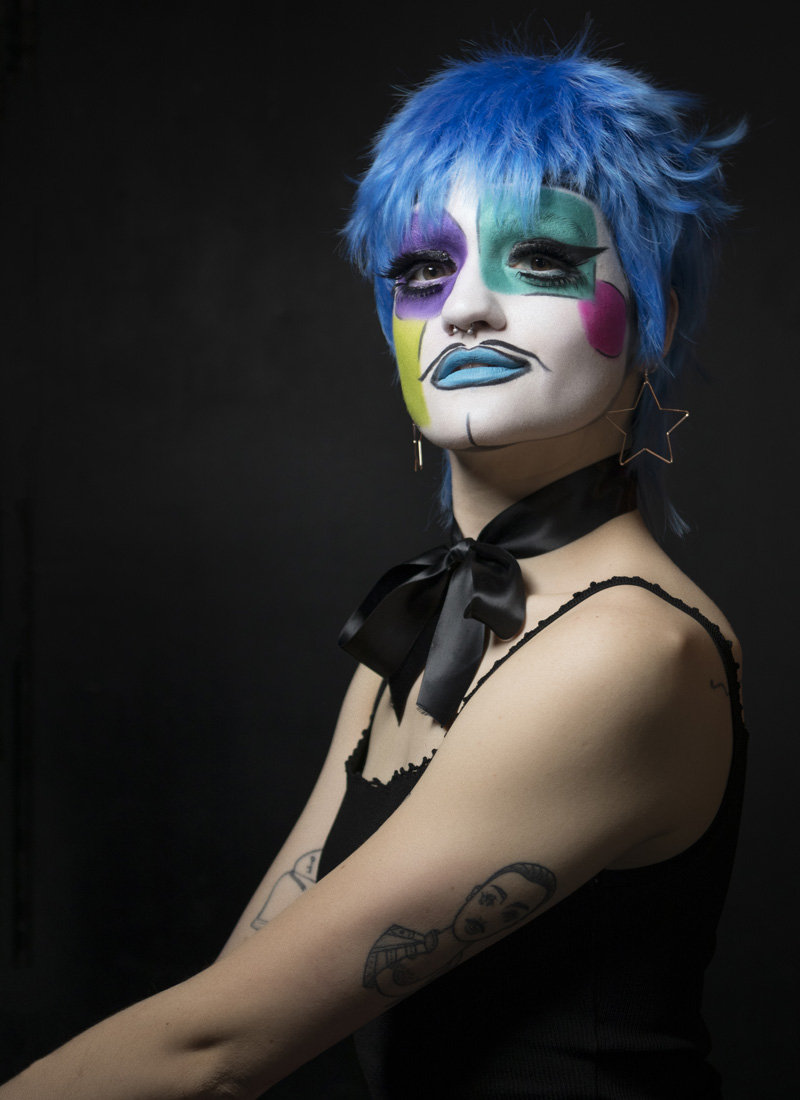
Dank, how did it feel for you having that moment described on the show?
Dank: From my perspective, as a non-binary person, this is every single day shit. I have this conversation with people every single day. It’s not a devastating thing for me; it’s not fun, but I’ve gotten used to it.
Listen, you hope that you’ll never mess things up, but I fuck that stuff up all the time. I fuck it up with my friends who use the same pronouns I do every once in a while. It happens. Normalizing that and correcting yourself is important. You move on and keep on going.
Ocean, you talk on the show about how many terms associated with drag culture actually come from Black culture. What language should white people be careful about using?
Ocean: On the drag scene, the ‘Yass mama, werk queen’ thing—anything you would not say yourself as a white person, if it does not feel natural, it’s probably not natural. So often I’ll be performing somewhere and there’s so many scrawny cis-looking white boys who come up to me like, ‘Werk queen!’ and I’ll be like, ‘Did anybody ask you?’ It does not make me feel more at home that you’re trying to talk like a Black person.
Drag as an art form is about reference and homage. Where’s the line between appreciation and appropriation?
Sasha Me: It’s tough. I, as a bi-racial person, when I was a [non-drag] performer, I never had the opportunity to explore my Japanese background within theatre. I was constantly having to fit into white culture to audition for things.
I felt a gasp when I went on stage in the kimono [during a live performance taped for Drag Heals]. I could tell people were like, ‘Oh, shit. Is she supposed to do that?’ And I’m not sure if I should have but I’m glad I did. It’s an exploration I needed to have.
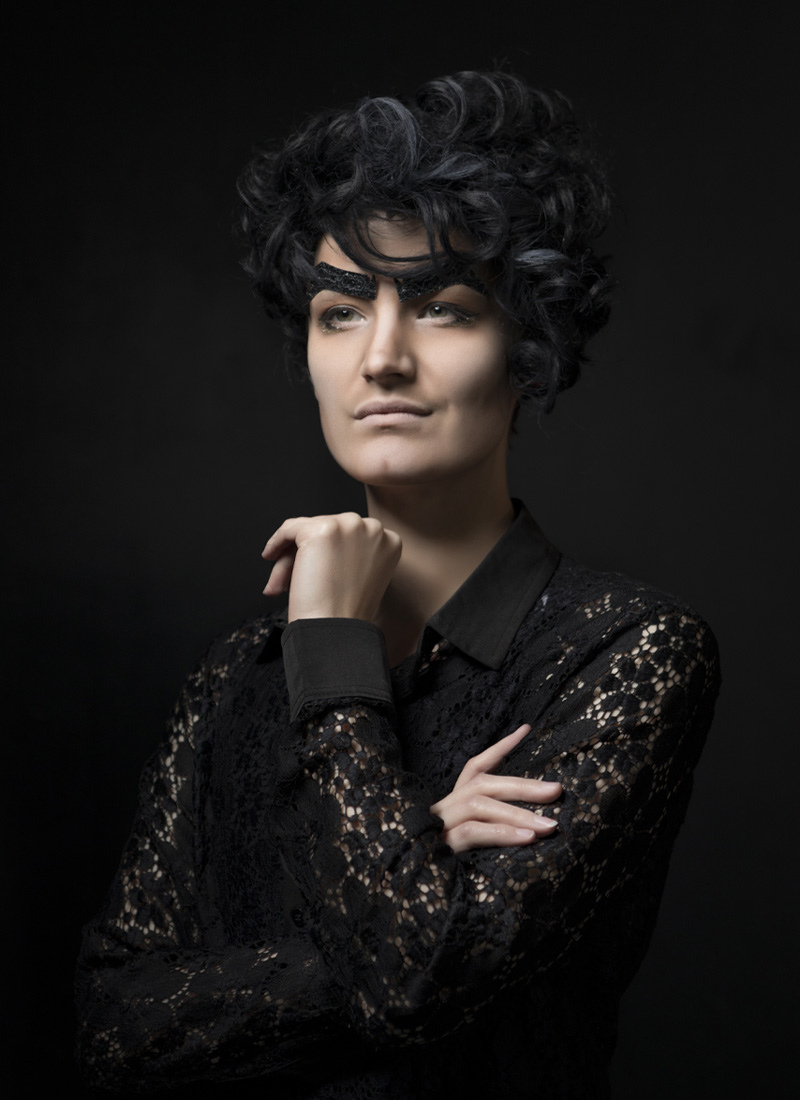
Cyril Cinder, you point out on the show this is the Golden Age of Drag, but only for queens.
Cyril: Drag queens are on television, they’re taking part in major ad campaigns. There are straight housewives who know the names of all of these drag queens, but couldn’t name a single drag king. It’s unfortunate. As we’ve had this mainstreaming of drag—which I think ultimately is a great benefit to the visibility of the queer community and drag as an artform—we unfortunately have not seen that same exposure for other kinds of drag.
I auditioned for Canada’s Drag Race for season one and I plan to audition again in the future even though it’s very unlikely I’ll be cast as a drag king—because a drag king has never been cast on any version of the Drag Race franchise. I think it’s really important we put ourselves on the ballot so there’s never an opportunity to say to us, ‘Nobody tried, nobody reached out.’
The word “fish” gets brought up on the show. Cyril, can you explain how that term is offensive to people with vaginas?
Cyril: It’s hard that an art form that’s about impersonating, and therefore celebrating, women can also be so hostile towards women. I was once with a cast of drag performers and there was a bad smell and it was implied it was coming from me, from my body. That’s why it was ‘fishy’ in there. That was not a compliment in any way. It very much felt like an attempt to call attention to the way in which I was different and use that as a way to disparage me.
I think we did a really good job on the show of having that conversation. I don’t think the vast majority of people who use the term fishy, especially those who are trying to use it as a positive thing [to say someone’s drag is terrific and very feminine]—because that’s how they’ve heard it—recognize the origin of the term of that it has potential misogynistic implications, that the height of womanhood is to have a vagina, then that vaginas are smelly and gross.
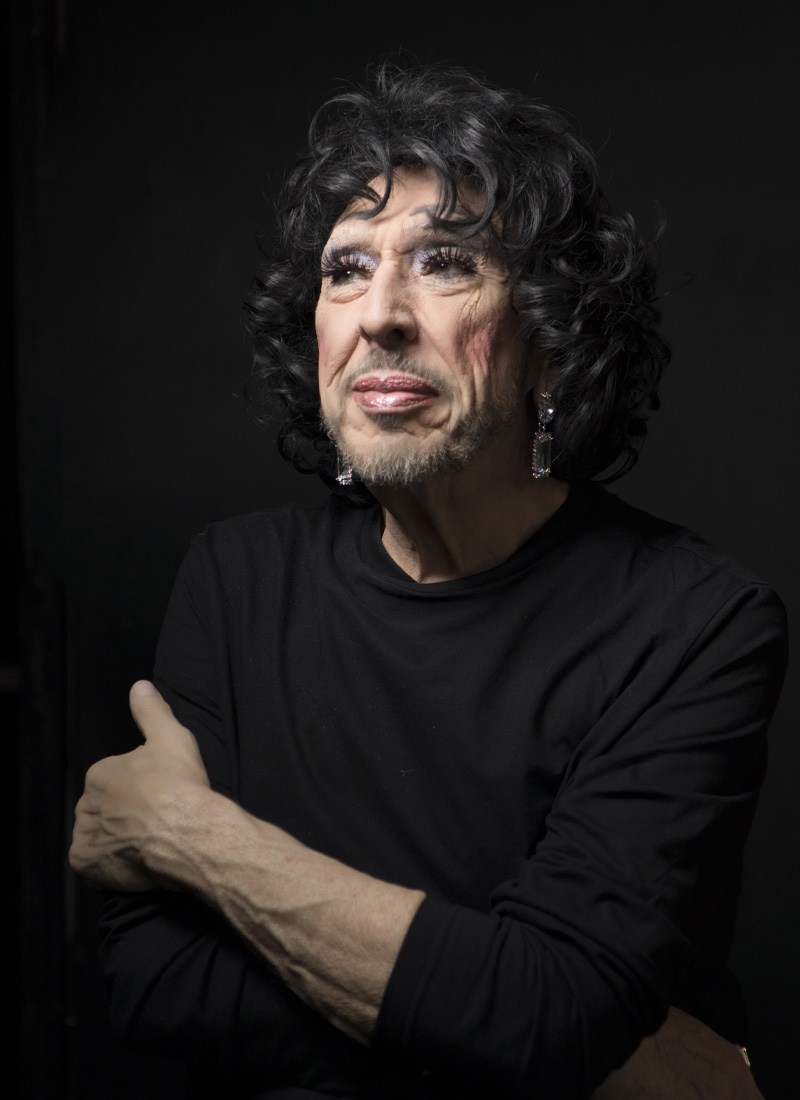
Miss Juwanna Dewitt, you came to drag later in life—you’re in your mid-70s. Have you experienced any ageism in the drag scene?
Miss Juwanna Dewiit: I’m not experiencing a division or any discrimination, but I’m working in spaces where I know I’ll be embraced. I often perform for straight-identifying people, especially when I do something in a senior or long-term care home. Those people eat it up! They love it.
Sasha Me, you had some concerns about doing drag because you’re heterosexual. How do you feel about that now?
It’s my responsibility to be concerned about feeling like a tourist. That concern, being careful about that, will continue. I feel so privileged to have had the opportunity to learn so much through this experience. I felt like I fit in because none of us fit in. We’re all misfits.
Drag Heals premieres October 2. Watch the trailer here:
The post Drag Heals Is the Queer Representation We Need On TV appeared first on FASHION Magazine.
